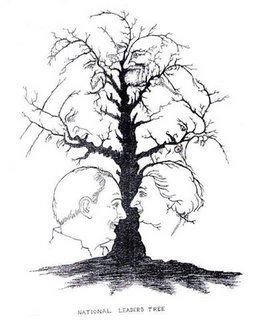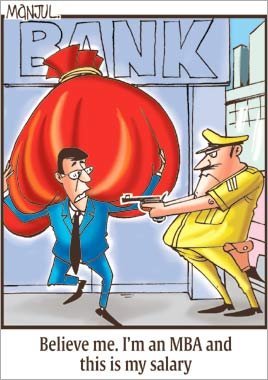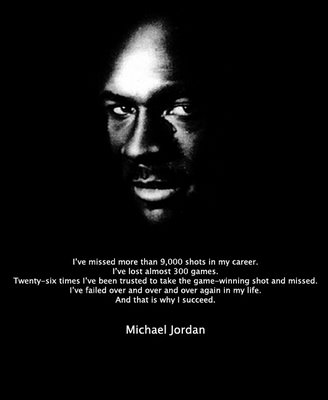Little Long but a good one..........
Guess who this intelligent student is, one of the most talented in our
country.
AN INTERESTING CONVERSATION .
An atheist professor of philosophy speaks to his class on the problem
science has with God, The Almighty.
He asks one of his new students to stand and .....
Prof: So you believe in God?
Student: Absolutely, sir.
Prof: Is God good?
Student: Sure.
Prof: Is God all-powerful?
Student: Yes.
Prof: My brother died of cancer even though he prayed to God to heal
him. Most of us would attempt to help others who are ill. But God
didn't. How is this God good then? Hmm?
(Student is silent.)
Prof: You can't answer, can you? Let's start again, young fellow. Is God
good?
Student: Yes.
Prof: Is Satan good?
Student: No.
Prof: Where does Satan come from?
Student: From...God...
Prof: That's right. Tell me son, is there evil in this world?
Student: Yes.
Prof: Evil is everywhere, isn't it? And God did make everything.
Correct?
Student: Yes.
Prof: So who created evil?
Student: does not answer.
Prof: Is there sickness? Immorality? Hatred? Ugliness? All these
terrible things exist in the world, don't they?
Student: Yes, sir.
Prof: So, who created them?
Student: has no answer.
Prof: Science says you have 5 senses you use to identify and observe the
world around you. Tell me, son...Have you ever seen God?
Student: No, sir.
Prof: Tell us if you have ever heard your God?
Student: No, sir.
Prof: Have you ever felt your God, tasted your God, smelt your God? Have
you ever had any sensory perception of God for that matter?
Student: No, sir. I'm afraid I haven't.
Prof: Yet you still believe in Him?
Student: Yes.
Prof: According to empirical, testable, demonstrable protocol, science
says your GOD doesn't exist. What do you say to that, son?
Student: Nothing. I only have my faith.
Prof: Yes. Faith. And that is the problem science has.
Student: Professor, is there such a thing as heat?
Prof: Yes.
Student: And is there such a thing as cold?
Prof: Yes.
Student: No sir. There isn't. (The lecture theatre becomes very quiet
with this turn of events.)
Student: Sir, you can have lots of heat, even more heat, superheat, mega
heat, white heat, a little heat or no heat. But we don't have anything
called cold. We can hit 458 degrees below zero which is no heat, but we
can't go any further after that. There is no such thing as cold. Cold is
only a word we use to describe the absence of heat. We cannot measure
cold. Heat is energy. Cold is not the opposite of heat, sir, just the
absence of it. (There is pin-drop silence in the lecture theatre.)
Student: What about darkness, Professor? Is there such a thing as
darkness?
Prof: Yes. What is night if there isn't darkness?
Student: You're wrong again, sir. Darkness is the absence of something.
You can have low light, normal light, bright light, flashing
light....But if you have no light constantly, you have nothing and it's
called darkness, isn't it? In reality, darkness isn't. If it were you
would be able to make darkness darker, wouldn't you?
Prof: So what is the point you are making, young man?
Student: Sir, my point is your philosophical premise is flawed.
Prof: Flawed? Can you explain how?
Student: Sir, you are working on the premise of duality. You argue there
is life and then there is death, a good God and a bad God. You are
viewing the concept of God as something finite, something we can
measure. Sir, science can't even explain a thought. It uses electricity
and magnetism, but has never seen, much less fully understood either
one.
To view death as the opposite of life is to be ignorant of the fact that
death cannot exist as a substantive thing. Death is not the opposite of
life: just the absence of it.
Now tell me, Professor. Do you teach your students that they evolved
from a monkey?
Prof: If you are referring to the natural evolutionary process, yes, of
course, I do.
Student: Have you ever observed evolution with your own eyes, sir? (The
Professor shakes his head with a smile, beginning to realize where the
argument is going.)
Student: Since no one has ever observed the process of evolution at work
and cannot even prove that this process is an on-going endeavor, are you
not teaching your opinion, sir? Are you not a scientist but a preacher?
(The class is in uproar.)
Student: Is there anyone in the class who has ever seen the Professor's
brain? (The class breaks out into laughter.)
Student: Is there anyone here who has ever heard the Professor's brain,
felt it, touched or smelt it? No one appears to have done so. So,
according to the established rules of empirical, stable, demonstrable
protocol, science says that you have no brain, sir.
With all due respect, sir, how do we then trust your lectures, sir?
The room is silent. The professor stares at the student, his face
unfathomable.)
Prof: I guess you'll have to take them on faith, son.
Student: That is it sir... The link between man & god is FAITH. That is
all that keeps things moving & alive..
WANT TO KNOW WHO THAT STUDENT WAS
>.
>.
>.
>.
>.
>.
>.
>.
>.
>.
>.
>.
>.
>.
NB: I believe you have enjoyed the conversation...and if so...you'll
probably want your friends/colleagues to enjoy the same...won't you? So
do forward them to increase their knowledge... this is a true story, and
the student was none other than......... Dr. APJ Abdul Kalam, the
present president of India.
American Express made the following
annotations on 03/28/06, 04:07:31



